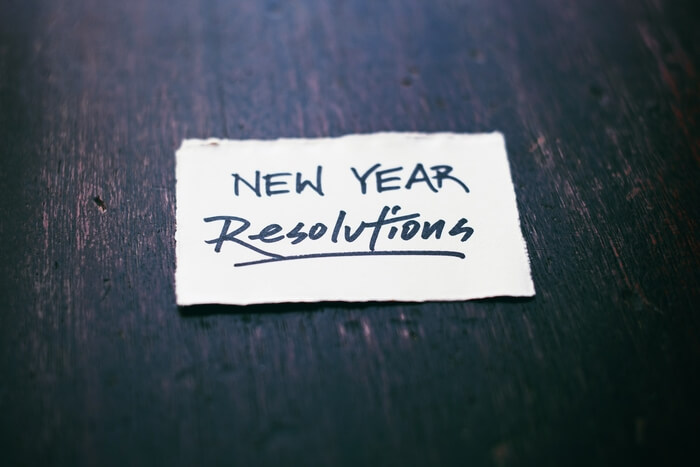
2022 is coming to an end, and you may start thinking about all the goals you intend to achieve in the new year ahead. If you’re a technical writer, your New Year’s resolutions perhaps include some things related to technical communication, education, and professional software. But sometimes, it’s hard to define your goals. So here are seven technical writing resolutions to try in 2023 and a few things to keep in mind as you improve your professional skills.
Attend Conferences for Technical Writers
It doesn’t matter if you’re an experienced technical writer or a novice — conferences and other industry events can promote your professional growth and connect you to your colleagues.
For example, you can attend MEGAComm — a conference for technical communicators, translators, and content managers. Such specialists will have a chance to listen to industry experts and discuss insights in person. This event will take place in Jerusalem on February 22–23, 2023.
Besides, pay attention to Write the Docs. It’s a conference for ‘documentarians’ — people who are interested in creating or reading documentation, regardless of job position. The Write the Docs team uses this word to define their target audience.
Although the theme of the conference is not broad, its contents are helpful for different groups of experts such as:
- Support specialists
- Developers
- Technical writers (of course)
- Sales managers.
Take Technical Writing Courses
Technical writing skills can become a competitive edge in your CV. So take some courses and discover the field of technical communication. You will learn new terms, get acquainted with new types of documentation, get an overview of a new field of knowledge, and improve your writing skills.
For example, pay attention to the following courses:
- Technical Writing One and Two. Created by Google Developers, the course covers the basics of technical writing, like recognizing pesky pronouns, converting passive voice to active voice, understanding the difference between bulleted and numbered lists, and so on.
- English Communication for Tech Professionals. You can take this course following your own schedule. For instance, it’s essential if your time zone differs from the lecturer’s. After completing the course, writing certifications are provided that students can share online.
- Technical Writing: A Quick Start to Software Documentation. The course is authored by the JPDocu School of Technical Writing, specializing in designing, training, and user assistance. So the target audience of this course can be divided into three groups: technical writers, information architects, and software developers.
Try the New Features of ClickHelp
ClickHelp, a help authoring tool, has announced the Wave update in November 2022. So now technical writers can use new API features, import a Swagger/OpenAPI definition to their portal, and use other robust improvements.
ClickHelp introduces a substantial API expansion and a handful of new API methods. Pay attention to the use cases our API can help with:
- sync external knowledge base articles to ClickHelp
- implement custom format importing
- update files automatically
- create more sophisticated external viewers.
Moreover, technical writers can import Swagger/OpenAPI files — this update will allow them to manage user guides and API documentation in one platform. As a result, you’ll be able to search through all your content.
You can also see your topic in the reader interface while editing. Just click the “Preview as a reader” button and find out how it looks for readers without publishing the topic.
Read more about other features in the ClickHelp November 2022 Wave Update Overview.
Read More
Stephen King once said, “If you don’t have time to read, you don’t have the time to write.” This principle concerns technical writing, too. So one of your jobs is reading as much as possible. The more familiar you are with the technical terminology and great examples of user guides, the better you will explain complicated things to your target audience.

Become a Technical Editor
Technical editing is a process of generating content with writers to check the correctness of specialized terminology, equations, and combinability of textual and visual elements. It is iterative and not a one-time routine. Technical editors usually review the same materials multiple times, and before the documentation is printed or published online, their edits are reviewed.
Since it’s another skill, you can try something new — maybe editing technical texts and managing people will be more enjoyable for you.
The situation when a technical editor makes changes and then publishes the materials immediately is exceptional. Technical editing covers the same wide variety of subjects, contexts, and materials as technical writing.
Meet Other Technical Writers
Make a goal to spend more time with other technical writers in the upcoming year — even if you spend this time on social media. You can pick up a lot of information from colleagues: for example, a new writing process or tips and tricks. Some good ways to meet other technical writers: join a technical writing group (on LinkedIn, for example) and attend conferences (as discussed above).
Learn Design
Now, technical writing is more than just writing: you should design your documentation and create illustrations or screenshots because every reader loves visuals. It’s easier to understand the idea through videos or pictures.
Moreover, a lot of enterprises create online documentation, so the UX of such documentation should be clear and attractive. Users always need help while using a software product. So effective documentation design builds a bridge between users and the platform. That’s why you should take a course on UX and read relevant books.
Conclusion
Don’t tackle everything on the list. Instead, you can pick a few resolutions that motivate you and then gradually complete tasks over the year. No need to hurry up and spend so much effort in the first months — you will reach the target anyway. What goals do you want to choose?
Good luck with your technical writing!
ClickHelp Team
Author, host and deliver documentation across platforms and devices


